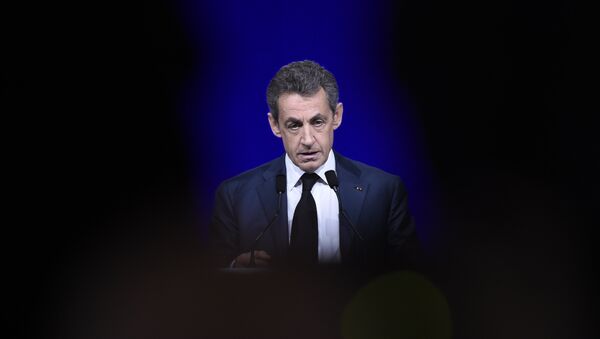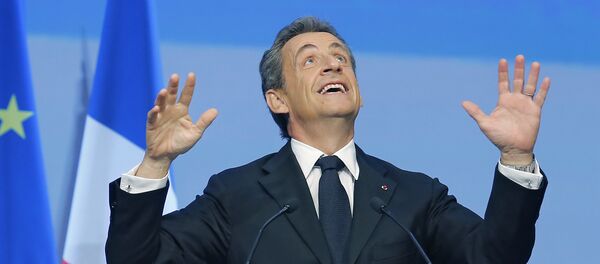The wisdom contained in the words of Rome’s most famous and illustrious emperor, a man whose very name is synonymous with power, is confirmed in the plight of Nicolas Sarkozy, former President of the French Republic for whom ignominy beckons with the news that he has been charged with corruption and influence peddling. Specifically, he is accused of attempting to suborn the senior judge who was heading the investigation into Sarkozy’s 2007 presidential campaign, concerning campaign finance illegalities.
READ MORE: Sarkozy to Appeal Against Resumption of Corruption Probe — Reports
The announcement that French authorities have decided to formerly charge the country’s former president with criminal wrongdoing on this matter comes on the back of the revelation that another investigation has begun in the wake of the allegation that Sarkozy accepted millions in illegal campaign donations from Libya’s Muammar Gaddafi to help finance his 2007 bid for the presidency.
Call it kismet, call it karma, the fact that Muammar Gaddafi’s will be the name that accompanies Sarkozy to prison if convicted has to count as something approximating to poetic justice. For in reaching out from the shallow grave in which his violated and butchered body rests somewhere out in Libya’s vast tracts of desert, Libya’s former leader is now on course to being the author of the Frenchman’s downfall.
Libya's fate in 2011 will forever stand as an indictment of Western foreign policy. It confirmed NATO’s role as an instrument of Western imperial power, dropping 'democracy bombs' on a beleaguered North African country that found itself caught up in the vapour trails of an Arab Spring that had already succeeded in removing pro-West dictatorships in Tunisia and Egypt.
The uprising in Libya, emanating in Benghazi in the east of the country, was presented in the West as a revolution against a brutal dictator in the cause of democracy and liberty. NATO'’s intervention, beginning in March 2011 under the auspices of UN Resolution 1973, was predicated on the claim that Gaddafi’s forces, approaching Benghazi to quash the uprising in its initial stages, had been directed by the Libyan leader to show “no mercy” to the city’s residents.
When it comes to the specific character of this Libyan revolution, in August 2011 the BBC confirmed how "Islamists have played an important part in the uprising."
In particular, the Islamist leader Abdul Hakim Belhaj, former head of the Libyan al-Qaeda affiliate, the Libyan Islamic Fighting Group (LIFG), was a key figure within the leadership of the 2011 insurgency. As an aside, under Belhaj’s leadership, the LIFG was known to have attempted to assassinate Gaddafi three times during the 1990s, prior to the group being crushed by the country’s security forces in 1998.
In point of fact, rather than intervene in order to protect civilian life, as mandated under UN Resolution 1973, NATO intervened on the side of an insurgency in which Islamists — people adhering to the same ideology embraced by those who carried out the terrorist atrocity of 9/11 in the US, the 7/7 terrorist atrocity in London, the Madrid bombing in 2006, along with a litany of other such Islamist terror attacks across Europe and the US since — were in the vanguard.
This truth places Sarkozy's now infamous appearance in Libya in September 2011 in damning context. The then French president had descended on the country in the company of his British counterpart David Cameron to bask in the adulation of the assembled crowds and spout platitudes of enlightenment and freedom. Of course, Cameron and Sarkozy’s eagerness for military intervention in 2011 had everything to do with democracy and nothing – nothing whatsoever — to do with the prospect of securing oil contracts that would be up for grabs in the 'new Libya'.
Why, perish the thought.
On such occasions, Shakespeare is indispensable: "The croaking raven doth bellow for revenge."
The views and opinions expressed in this article are solely those of the author and do not necessarily reflect those of Sputnik.





